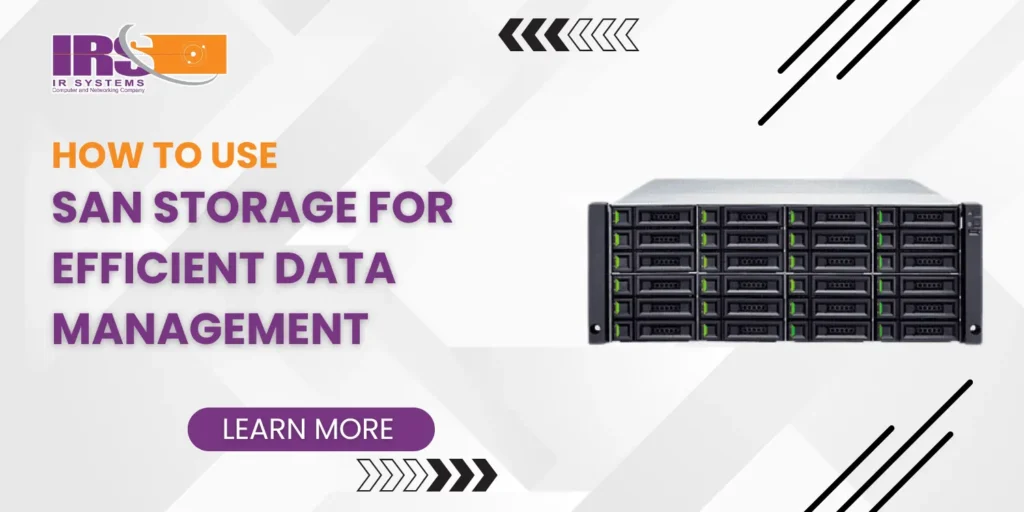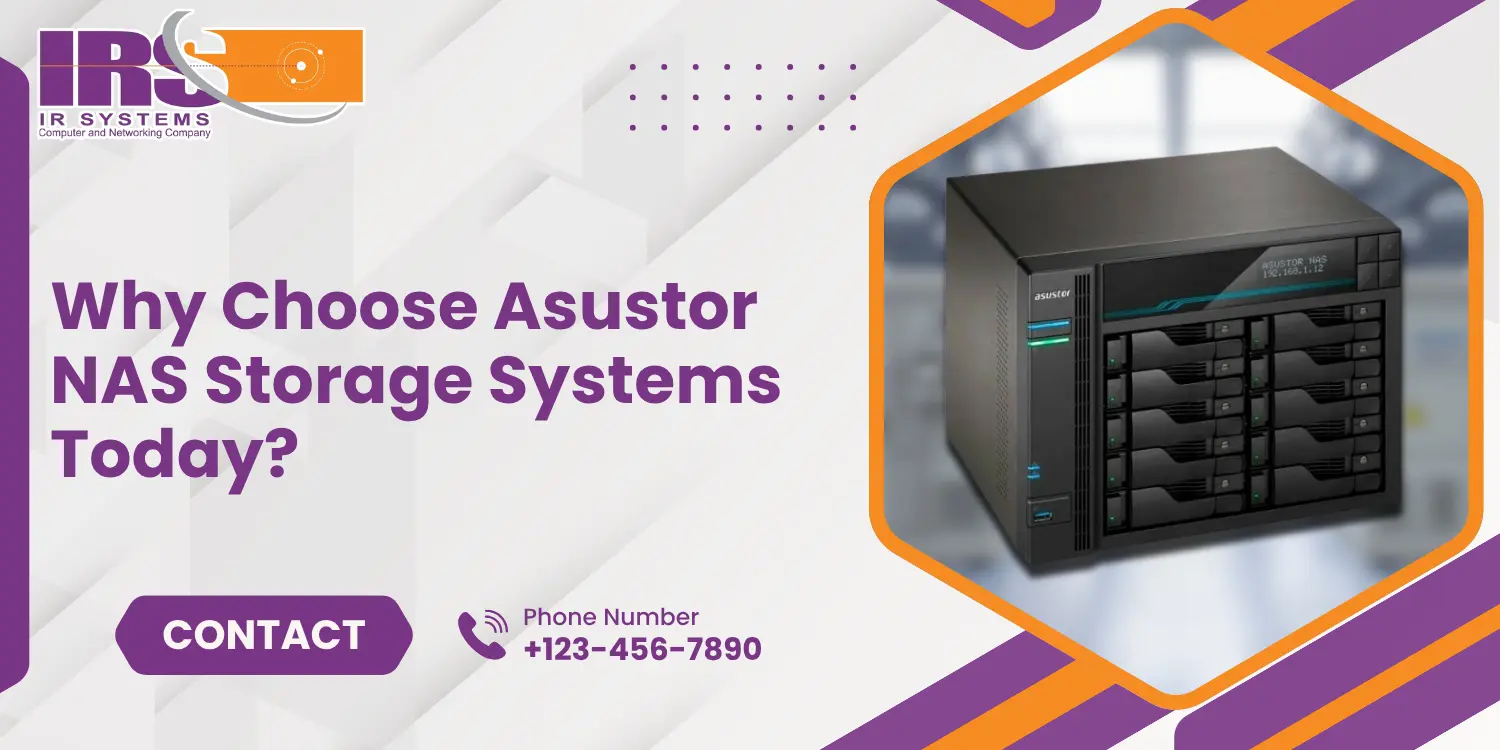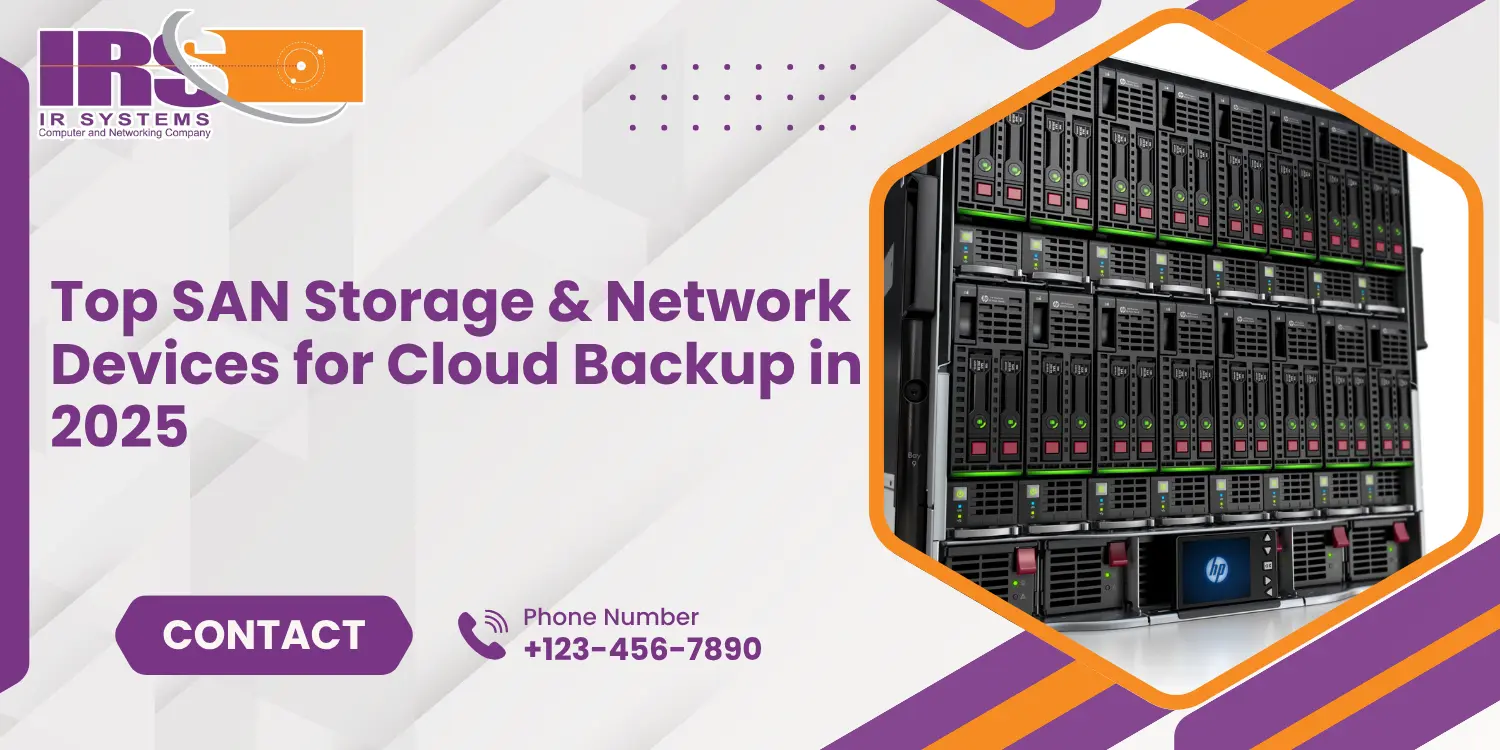Data storage and management are critical to maintaining smooth business operations. With SAN Storage, companies can centralize and secure their data effectively. This blog explores the fundamentals of SAN, its advantages, and how it differs from traditional storage options, plus offers some insights into backup solutions to ensure data safety.
What is SAN Storage?
A Storage Area Network (SAN) connects multiple storage devices to create a shared pool of data storage. SAN storage, unlike typical network-attached storage (NAS), is designed for high-speed data transfer and can handle significant workloads across a larger network of servers. This makes SAN an ideal choice for businesses needing reliable data storage solutions with fast, secure access to critical information.
Why Consider SAN for your business?
For businesses operating, having a reliable storage system can save both time and resources. SAN offers benefits such as:
- Enhanced Data Availability: With SAN, you can access data quickly, making it ideal for organizations with large databases.
- Scalability: As your business grows, SAN storage can easily be expanded to meet higher data demands.
- Redundancy: It provides backup features that safeguard against data loss, ensuring business continuity.
Key Advantages of SAN
Implementing SAN Storage offers multiple advantages that can enhance business productivity. Here are some of the key benefits:
- High-Speed Data Access: SANs use fiber or high-speed connections that allow faster access than traditional storage systems.
- Centralized Storage Management: With centralized control, you can manage storage resources efficiently from one location.
- Improved Security and Backup: Security protocols in SAN setups protect sensitive data from unauthorized access. SANs also offer reliable backup options.
How Does SAN Storage Differ from NAS?
SAN and NAS (Network-Attached Storage) are both valuable storage options, but each serves different needs.
- Data Transfer Speed: SAN is typically faster, making it suitable for applications requiring quick access to large amounts of data.
- Deployment: NAS is easier to set up, but SAN offers greater control and customization.
- Data Access: SAN provides block-level access, while NAS works with file-level access, making SAN ideal for large database-driven environments.
Backup Solutions for SAN Storage
For businesses using SAN, incorporating reliable backup solutions is essential to protect data from unexpected losses.
- Automated Backups: One of the most practical options is setting up automated backups. Automated backup solutions can help ensure data is regularly backed up without manual intervention.
- Cloud-Based Backup Solutions: Leveraging cloud backup allows for off-site storage, adding another layer of security for your SAN data. Cloud backup is highly scalable and can be customized to suit specific requirements.
- QSAN Storage: QSAN storage solutions are also compatible with SAN, offering an additional level of reliability. Designed with advanced technology, QSAN provides stable and secure storage, ensuring data integrity and quick recovery options in case of failures.
With these backup solutions, your business in Lahore can rest assured that critical data is secure, accessible, and easily recoverable.
How to Use SAN Storage Efficiently?
Using SAN Storage efficiently can enhance your data management capabilities. Here are some tips for optimizing SAN usage:
- Plan Your Storage Layout: Organizing data into logical segments or partitions improves access and management.
- Set Access Controls: Implementing access controls can limit data access, enhancing security.
- Regularly Monitor Performance: Periodic assessments allow for performance tuning, helping you manage and predict storage needs.
What is QSAN Storage?
QSAN Storage provides high-performance, reliable, and secure storage solutions ideal for businesses requiring stable and efficient data management. Known for its robust architecture, QSAN integrates seamlessly with SAN systems, offering a scalable and flexible option for data-intensive applications.
Key Features of QSAN
- Data Integrity: QSAN ensures data accuracy and reliability, even during high-volume transfers.
- High Availability: Built-in redundancy and failover features minimize downtime.
- Ease of Management: User-friendly interfaces make it easy to monitor and manage storage resources.
QSAN Storage is an optimal choice for businesses that prioritize data security, availability, and scalability.
FAQ
- What is the main advantage of SAN storage over NAS?
SAN offers high-speed data access, making it ideal for environments that require quick, frequent access to large volumes of data. - Can you use SAN storage for backup solutions?
Yes, SAN storage can support various backup solutions, including cloud-based and automated backups. - What is QSAN, and how does it work with SAN storage?
QSAN provides reliable storage technology designed to integrate with SAN for secure and efficient data storage. - Is SAN storage suitable for small businesses?
While SAN is often used by larger businesses, small businesses with high data needs can also benefit, especially if scalability and fast access are priorities.
Final Thoughts:
For businesses looking for secure and scalable data storage solutions, SAN Storage offers unparalleled advantages. From fast data access to efficient backup solutions, SAN is an ideal choice for companies focused on data integrity and availability. Explore our website to find the ideal SAN setup for your business needs.










